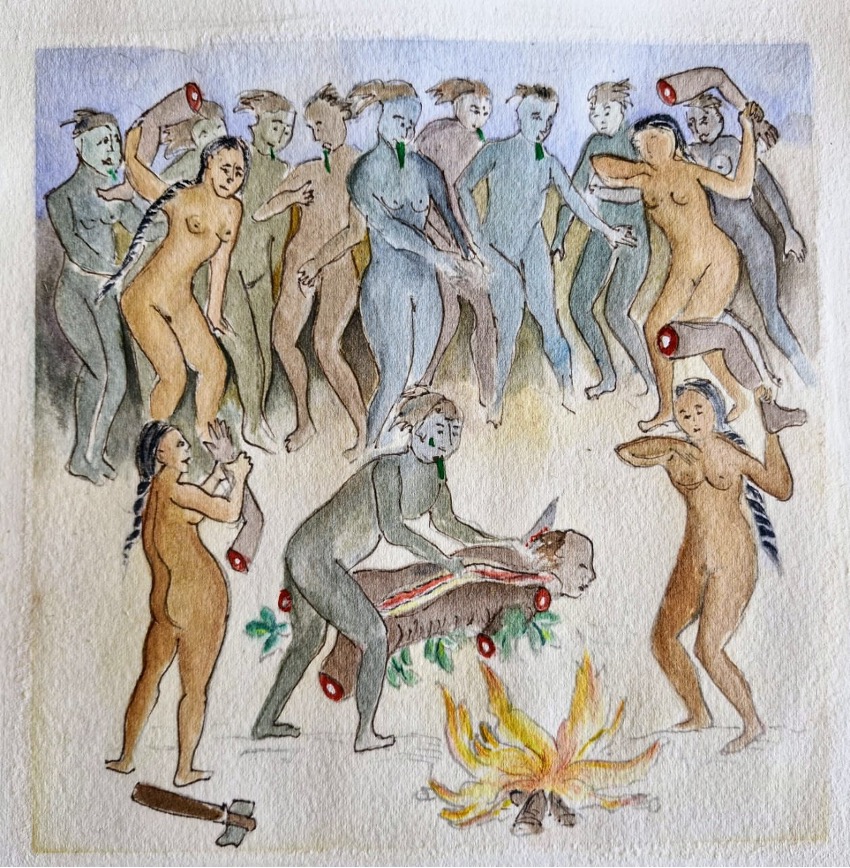This program will be recorded and made available publicly on our YouTube channel.
You do not need to have registered to view the video.
When, in the 16th century, the first foreigners landed on the Brazilian shores, they were profoundly overwhelmed by a striking scenario: the unwavering inclination of the Amerindians, especially the Tupinambá, toward warfare and the capture of enemies. What was most surprising, however, was that their warfare was not primarily driven by the pursuit of wealth, but by the need to take prisoners for sacrifice in their cannibalistic rituals. This lecture investigates the symbolic fabric upon which the Tupinambá warfare was organized. It demonstrates that the cannibalism practiced by these Amerindians was not primarily intended for the incorporation of the traits of the defeated individual. Instead, the ultimate goal of this practice was connected to the creation of an incorruptible body.
Inácio Cunha, PhD, a Jungian Analyst, graduated from the Research and Training Centre for Depth Psychology According to C. G. Jung and Marie-Louise von Franz in Zurich. He currently coordinates a discussion forum for analysts who graduated from this Centre. He is in private practice in Belo Horizonte, Brazil, where he also teaches and organizes meetings on Jungian psychology.
He has translated three books by Marie-Louise von Franz into Portuguese and has published the following books in English: The Lower Limbs in Jungian Psychology: The Girl with Her Big Toe in Her Mouth; The Feminine Entrapped Within a Fruit: A Jungian Interpretation; and The Costs of Consciousness. He has recently published in Portuguese: Mito Cosmogônico Tupinambá – À Luz da Psicologia Analítica Junguiana (Tupinambá Cosmogonic Myth – In the Light of Jungian Psychology). The book O Canibalismo Tupinambá e a Construção do Corpo Eterno (The Tupinambá Cannibalism and the Building of the Eternal Body) is also currently in print.
Learning objectives:
- Appreciate how religiosity was determinant for the dynamics of the Tupinambá culture, especially regarding their warfare and cannibalism.
- Describe the Tupinambá’s own view regarding their warfare and appetite for human flesh and its symbolic connection to the prospect of a life in the beyond.
- Compare the Tupinambá’s own view regarding their warfare and appetite for human flesh to the White Man’s understanding of the Brazilian Amerindians.

